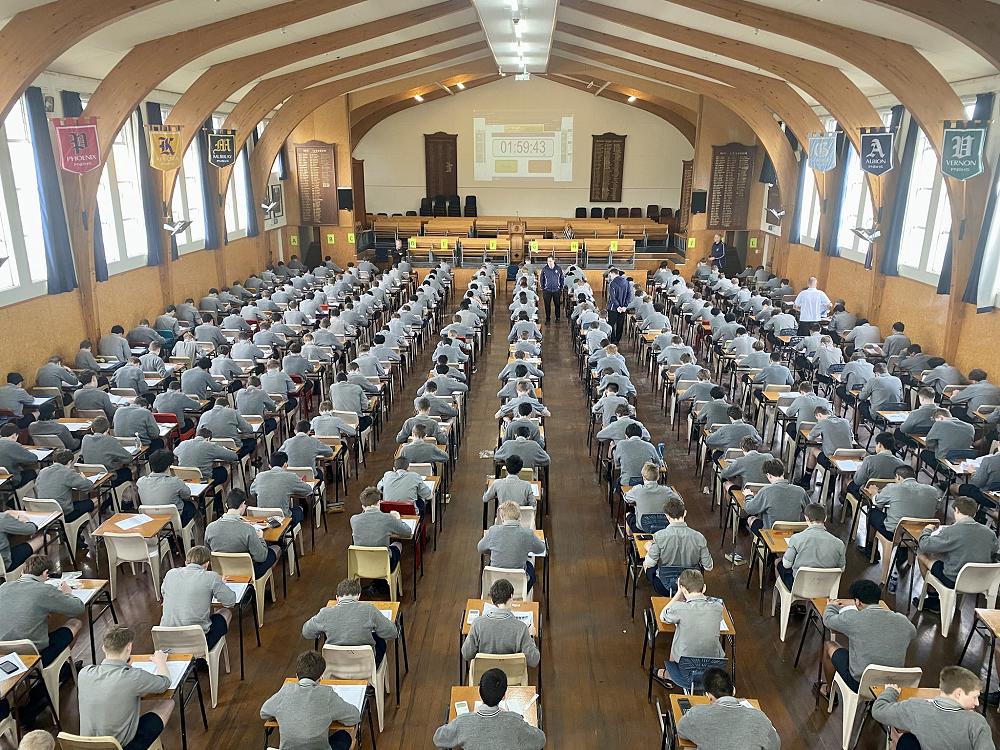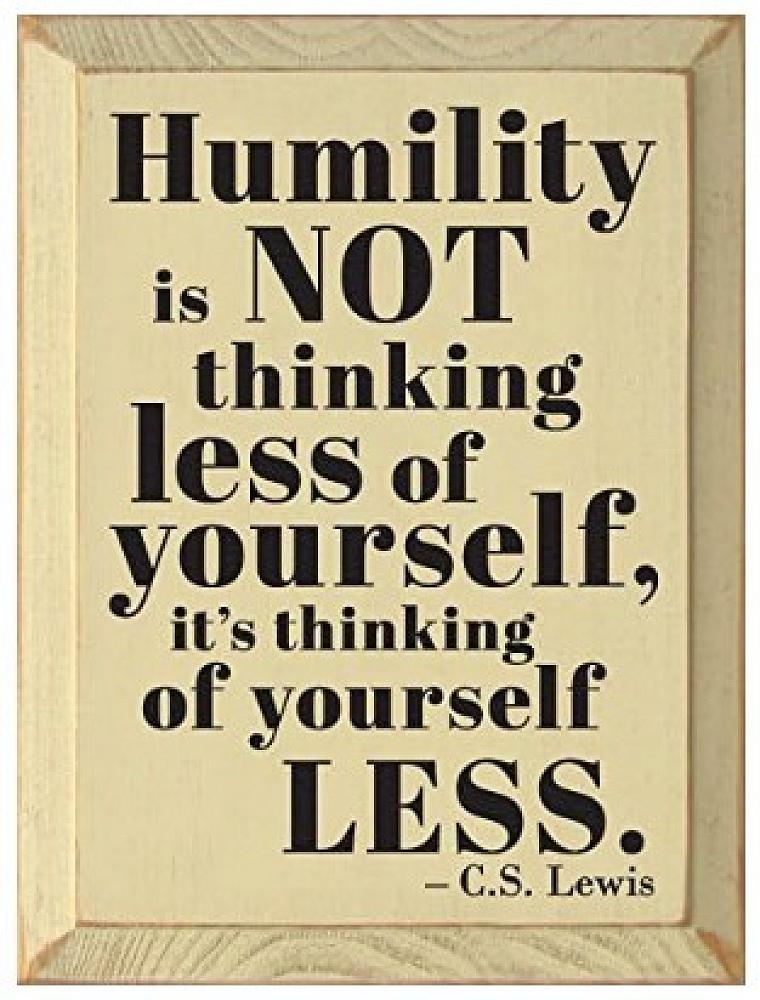
From the Deputy Rector
Kia ora, Tēnā koutou katoa, Fakaalofa lahi atu, Tālofa lava kia orana, Mālō e lelei, Mālō nī, Ni sa bula vinaka, Tālofa
Ngākau Mahaki | Humility
Over the latter part of term three, we have focused on the value of Ngākau Mahaki | Humility and have seen it exhibited in a wide range of settings. We hope that our sports teams that performed strongly during the season displayed Ngākau Mahaki | Humility in their successes, while those teams that struggled certainly appreciated it when the opposition displayed this value. Intellectual Ngākau Mahaki | Humility - the awareness that we don't know everything and that with dedicated and deliberate effort can always improve on our achievements - will be an important value as young men at all year levels prepare for their final examinations.
In essence, Ngākau Mahaki | Humility requires us to step back from ourselves, to view situations from other perspectives, to show empathy, care and concern for others. In a social media saturated world that is becoming increasingly focused on the 'I', true Ngākau Mahaki | Humility is becoming a rare commodity, but one that we must all strive to preserve.

Writing for The Conversation Professor of Psychology at the College of Charleston, Jen Cole Wright, explains that "the default psychological setting for human beings is an unavoidable self-centredness. We stand at the centre of our own thoughts, feelings and needs, and thus experience them in a way that we cannot experience the thoughts, feelings and needs of others." She further explains that this is a natural part of our human experience, but one that is problematic. She encourages us to consciously take a step back from our own lives to "take in the whole of humanity", to recognise that our inward-looking self-focus overinflates our sense of importance and consequently distorts our ethical sensibilities and as such, Ngākau Mahaki | Humility is foundational to other intellectual and moral virtues.
Wright's thoughts become very pertinent when juxtaposed alongside the current election campaigning in New Zealand - one that is becoming continually more polarising with some issues thrown about as political footballs. Perhaps a greater degree of Ngākau Mahaki | Humility across the political spectrum is necessary. (click here to read the full article)

We can all work to show more Ngākau Mahaki | Humility and to grow this value in those around us - long term, others will be thankful that you did:
- Involve others in decision-making. Let others weigh in with their thoughts and recommendations. Not only are you able to then pull from a larger and more diverse pool of options, but by engaging others in the process, you encourage them to own the final decision, too.
- Be willing to ask for help. It’s as easy as saying, “I don’t know, actually. What do you think?”
- Admit mistakes and failures. Be willing to own mistakes or failures and admit to them directly. Don’t try to hide them or ignore them. Use these as lessons for others to learn from and show how you grew from them.
- Ask questions all the time, especially during casual conversations. Don’t make discussions about you. Always defer to be others-focused. People become interested in those that are interested in them. Focus on being interested, not interesting.
- Share stories, but make sure they have a point. It’s ok to share stories or experiences from your past. But don’t share them merely to talk about yourself. Share them to offer a lesson. Ensure your stories have a “so what” and “therefore” lesson to them.
- Demonstrate a growth mindset. Every experience, event, and moment are an opportunity for development. This applies to you and for others.
- Express gratitude and celebrate others. Gratitude felt does not mean gratitude is shared. If we don’t share it, they won’t know it. Be deliberate in sharing gratitude and celebrating others’ efforts or accomplishments. It can be public recognition in front of a group, a hand-written note, a simple but clear comment, or even a quick email. All are ways that they know we see their work, know it’s impactful, and appreciate it.
- Be open to, receptive of, and supportive of others’ ideas. Let others contribute. Validate their idea by asking questions about it and trying to understand it better. Thank them for their willingness to share. And help champion the idea if it is worthwhile.
- Stay keenly aware of team cohesion and collaboration. Do not allow in- vs. out-groups, scapegoats, or cliques. These build barriers and improperly bring focus and power to certain individuals.
- Be kind, compassionate, and respectful. Always, no matter the situation.
- Own responsibility, but share recognition. If our team fails at something, we own the responsibility. If we succeed, we share the credit with our team.
- Simply listen more. Actively and emphatically. Don’t be distracted when you interact with others. Remove barriers like phones or computers. Maintain eye contact. Don’t look around when they speak. Aim to listen and ask questions twice as much as you talk during conversations.
- Do something helpful for someone else. Especially if it is of no benefit to you or the organization. Do it especially if they can’t return the favor. Do it if it only benefits them individually. (click here to read the full article)
Assessment Matters
Senior School Examinations
As you read this, senior students will have completed their school examinations and, in most instances, will have had their exam papers marked and been notified of the grades they earned. Young men have a tendency to fixate upon the outcomes of assessments; whether they ‘passed’ or ‘failed’, or perhaps gained a result that indicates they are on course to gain a particular level of NCEA or endorsement at Merit or Excellence Level. While this is a natural response following an assessment, it is vital that they ‘dig a little deeper’ in terms of their analysis. Identifying which Standards, or which particular questions they coped well with, and which parts they struggled with, are important next steps in preparing for the upcoming external NCEA examinations.
Furthermore, young men will frequently focus their time and efforts on the things they enjoy and are good at. While this is a common sense approach in many aspects of life, it is often detrimental in terms of preparation for examinations. Usually, it is the subjects and/or Standards that your son finds the most difficult, or perhaps enjoys the least, that require the greatest time and effort from him if he is to achieve the best possible NCEA grades he can in the external examinations.
I encourage you to spend time with your son during the holidays to go through his examination results in each Standard and to assist him in developing a revision plan so that he can maximise his time over the next few weeks. NCEA examinations begin on Monday, November 6. The good news is that even for those young men who have perhaps not performed to their potential in the school examinations, there is still sufficient time for them to lift their performance prior to the external examinations. Completing papers from previous years is a very useful revision tool and a link to these on the NZQA website - click here.
Young men know they need to revise for their upcoming NCEA and Junior examinations. However, not all will know what study techniques are the most effective (hint: reading your notes and highlighting is very ineffective). Click here to find a range of resources to help parents and young men work together so that they can give themselves the best chance of achieving their potential in these important examinations.
Junior Examinations
Junior examinations take place in week four of term four. These are an integral component of the assessment programme for junior students and will provide both you and your son with a strong indication of his progress in the second half of the year and assist with identifying aspects that will require greater focus in 2024. Adequately preparing for examinations with a structured revision programme is an important skill that it takes time to develop. The junior examinations provide opportunities for young men to acquire and practice these skills before they hit the ‘high stakes’ examinations associated with NCEA. It is therefore essential that your son makes every effort to be as well-prepared as possible for these examinations. Putting some time aside over the holidays to plan a revision programme and making sure that his bookwork is up-to-date are some simple things that will assist him in making the most of the time available at the beginning of term four.
Year 10 Literacy and Numeracy Assessments
During the week 30 October - 3 November there will be further Literacy and Numeracy assessments for young men in Year 10 who have not yet achieved these Standards. These assessments are part of the NCEA qualification from 2024. During our mid-year examination period, all young men in Year 10 sat the Numeracy assessment with 62% achieving this Standard, while three classes sat the Literacy assessments. Further information will be provided to young men and parents in term 4.
Physical Activity, Academic Success and Wellbeing
A study reported in the Journal of Paediatrics
identified a link between physical fitness and academic success. The researcher, Dr. Esteban-Cornejo,
concluded that having higher levels of physical fitness may help to reduce the
risk of failure at school and that all efforts should be made to promote
physical activity in teenagers in a bid to improve their academic grades. As a school, we strongly promote and encourage
involvement in extracurricular activities, and this study provides a further
compelling reason for this. The end of
the winter sports season will result in a reduction in regular physical activity
for many young men and taking steps to maintain fitness levels will have
academic benefits as well as benefits for your son's physical health and mental wellbeing.
A recent New Zealand-based study on the wellbeing benefits of sport during adolescence found that:
- Young people who are physically active are 2.49 times more likely to report having better wellbeing than young people who are inactive.
- Every extra hour per week of physical activity resulted in a 3% increase in the likelihood of young people reporting having better wellbeing.
- Young people who participate in organised sport were 66% more likely to report having better wellbeing than young people who do not participate in sport, regardless of total recreational physical activity participation.
